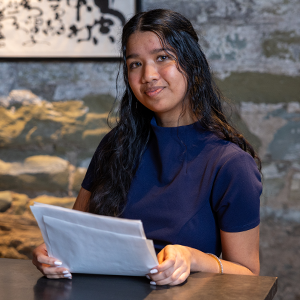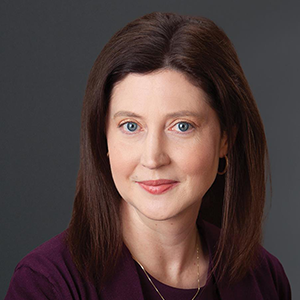Making the case

In 1985, two University of Pittsburgh law students entered a moot court competition in Manhattan and asked attorney Rick Rinaldo, Shady Drive East, if he would coach them. “I said, ‘Sure, I’ll do that,’ and 38 years later, here I am,” Rinaldo said.
Pitt Law School teams have entered the highly competitive BMI Cardozo moot court competition ever since, with Rinaldo volunteering to be coach and mentor each time. “I enjoy trying to help students,” he said.
Rinaldo is an of-counsel attorney with the Pittsburgh law firm Jones, Gregg, Creehan and Gerace.
The Cardozo Law School at Yeshiva University, with its stellar reputation for intellectual property law, held its 39th moot court competition—a competition where law students argue a simulated court case or arbitration process—at the end of March. BMI, the big industry player in music publishing, hosts the competition, which attracts student teams from 40 to 50 law schools around the country. While many of the schools have large intellectual property law programs, that’s not the case at Pitt. “We’re a little bit of a minnow in this competition, arguing against much more robust, bigger IP programs,” said Pitt law professor Mike Madison, Woodhaven Drive. “It’s important to note that because it puts Rick’s leadership and contribution in context,” he added.
Rinaldo and Madison met years ago when Rinaldo was director for Martha’s Run, the annual race held in memory of slain FBI agent Martha Dixon, and Madison was a race volunteer.
Today, Madison helps recruit students for the competition and handles the logistics and scheduling, but is quick to point out “this has really been Rick’s show.”
Over the years, the Pitt team has made it to the championship round at least four times, and to the semifinals at least 10 times, which is right up there with most of the schools that participate.

BMI Cardozo is the preeminent copyright law moot court competition in the United States. Students are given a mock case, then prepare a brief and oral arguments and pretend they’re arguing the case before the U.S. Supreme Court. The judges who hear the cases are senior practitioners, even federal judges. “It’s an extraordinary learning experience for all of the students who participate,” Madison said.
Rinaldo and co-advisor Dave Oberdick, a Pitt Law graduate, hold preliminary meetings to teach the students about writing appellate briefs. “Dave and I treat this competition as an intensive course in appellate advocacy,” Rinaldo said. “He deserves a lot of credit for this.”
Under new rules, once the problem is announced in January, no one is allowed to talk to the team members until after their brief is submitted in February. “We give the team about 24 hours to recover and then Dave and I start to meet with them on oral advocacy, which is the real fun of an intercollegiate moot court competition,” Rinaldo said.
Thanks to connections made by Madison, Rinaldo and Oberdick over the years, a number of folks are willing to serve as practice round judges. “Alums of prior Cardozo sessions just love to come back and torment their successors,” Rinaldo said with a laugh.
One of them is Dave DuMont, Atlanta Avenue, a practice round judge who helps determine the team’s understanding of the facts and law underlying their case. “Rick and Dave spend hours teaching their team how to be effective oral advocates in an appellate setting. It leads to better lawyers,” DuMont said.
Erin Belfield, a two-year moot court alum, and an intellectual property attorney in New York, stepped in to be the on-site coach this year, as budgetary constraints prevented Rinaldo from traveling to New York with the team.
After about three weeks of practice rounds, it’s time for the team to head to the Big Apple. The Pitt team did not advance this year. “Whether the team advances is not our determination of whether we’re satisfied with the team’s performance,” said Rinaldo. “It’s how hard they work, how much they improve, how they get better, how they take it seriously. This team really did.”





